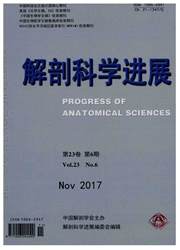

 中文摘要:
中文摘要:
缺血性脑卒中是由多种因素共同引起的致残致死疾病,其发病机制涉及信号转导通路、兴奋性谷氨酸受体活化、NO作用等。Kalirin是Rho蛋白家族中小GTP酶的一种神经特异的鸟嘌呤核苷酸转化因子,kalirin-7是成熟大脑中最丰富的kalirin同种型,对树突棘的维持等方面具有重要作用。多研究显示,kalirin-7在缺血性脑卒中也起一定作用,此分子对神经元具有保护作用,在缺血性脑卒中中其含量的减少加重了神经元的损伤。其机制可能包括:与PSD-95结合而改变了JNK信号传导通路,与NMDA受体亚单位结合减少以至兴奋性谷氨酸作用增强,以及对iNOS的抑制减少。
 英文摘要:
英文摘要:
Ischemic stroke is a disease caused by many factors leading to physical disability or even death. It relates to signal transduction pathway, the activation of excitatory glutamic receptor and function of NO. Kalirin is a brainspecific guanine-nucleotide exchange factor for the Rho family of small GTPases. Kalirin-7 is the most abundant isoform in the adult brain and important to the dendritic spines. Many researches show that kalirin-7 may play a role in ischemic stroke. This molecule may protect neurons, and its decrease in amount can aggravate the neuronal injury in ischemic stroke, the mechanism may involve in below: its interaction with PSD-95 changes the JNK signal transduction, the decrease of the combination with NMDA receptor subunit causes the increase of function of excitatory glutamic acid in some degree and the decrease of iNOS inhibition function.
 同期刊论文项目
同期刊论文项目
 同项目期刊论文
同项目期刊论文
 期刊信息
期刊信息
